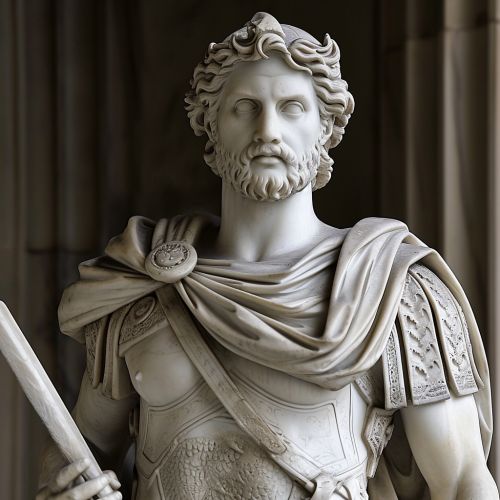Cassander of Macedon
Early Life
Cassander of Macedon was born in 350 BC to Antipater, the Macedonian regent, and his wife Eurydice. He was the eldest of several children, and his upbringing was marked by the political turmoil of the time. His father was a trusted advisor to Alexander the Great, and Cassander was exposed to the inner workings of the empire from an early age.
Education
Cassander was educated in the Hellenistic tradition, learning philosophy, politics, and military tactics. He was taught by some of the best tutors of the time, including the philosopher Aristotle. This education would later prove instrumental in his political and military career.
Career
Cassander's career began in earnest after the death of Alexander the Great in 323 BC. He was appointed as chiliarch, a high-ranking military and administrative post, by his father who had been made regent of the empire.


Conflict with Alexander's Successors
Cassander's rule was marked by conflict with Alexander's successors, the Diadochi. He was particularly at odds with Alexander's half-brother, Philip III, and his wife Eurydice. This conflict culminated in the Battle of Crannon in 322 BC, where Cassander emerged victorious.
Rule as King
Following his victory at Crannon, Cassander declared himself king of Macedon. His rule was marked by a series of reforms aimed at consolidating his power and restoring Macedonian traditions that had been eroded under Alexander's rule. He also founded the city of Thessaloniki, named after his wife, which would become one of the most important cities in the Hellenistic world.
Death and Legacy
Cassander's rule was short-lived. He died in 297 BC, just ten years after declaring himself king. Despite his brief reign, Cassander's impact on the Hellenistic world was significant. His policies and actions shaped the political landscape of the time, and his legacy continues to be studied by historians today.
